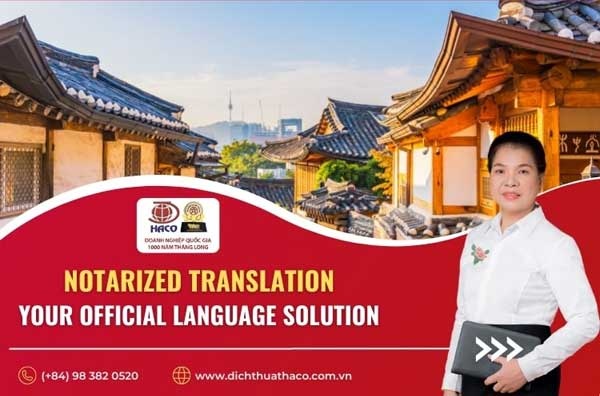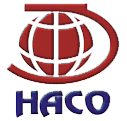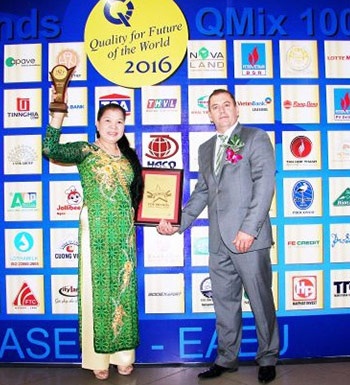Notarized translation is a translation of a document that has been certified by a notary public. A notary public is an official authorized by the government to witness the signing of important documents and certify that the signatures are authentic.
In the case of a notarized translation, the notary public certifies that the translation is a true and accurate representation of the original document. This type of translation is often required for legal or official purposes, such as submitting immigration or visa applications, registering a company in another country, or obtaining legal recognition of a foreign degree or certificate.
A notarized translation usually includes an original signature and seal from the notary public, indicating that the document has been properly authenticated and certified. The notarized translation, along with the original document, can then be used for official purposes, both domestically and abroad.
What is notarized translation?
Notarized translation is a process of translating documents from one language to another, with the added assurance that the translation is accurate and legally binding. This type of translation is often required for official documents, such as birth certificates, marriage certificates, and other legal documents. Notarized translations are typically done by certified translators who have been trained and certified to provide accurate translations. The notarized translation process ensures that the translation is accurate and legally binding, and that the translator has taken all necessary steps to ensure the accuracy of the translation.
The Legal Implications of Notarized Translation and What to Consider Before Signing
Notarized translation is a process in which a translator certifies that a document has been accurately translated from one language to another. This process is often used for legal documents, such as birth certificates, marriage certificates, and other official documents. It is important to understand the legal implications of notarized translation before signing any documents.
First, it is important to understand that notarized translation is not the same as certified translation. Certified translation is a process in which a translator certifies that a document has been accurately translated from one language to another, but does not require a notary. Notarized translation, on the other hand, requires a notary to witness the signing of the document and to verify the accuracy of the translation.
Second, it is important to understand that notarized translation is legally binding. This means that the document is legally valid and can be used in court. It is important to make sure that the translation is accurate and that all parties involved understand the implications of the document.
Third, it is important to consider the cost of notarized translation. Notarized translation can be expensive, as it requires the services of a notary. It is important to make sure that the cost of the translation is worth the legal protection that it provides.
Finally, it is important to consider the time frame for notarized translation. Notarized translation can take several weeks to complete, depending on the complexity of the document. It is important to make sure that the document is translated in a timely manner, as delays can lead to legal complications.
In conclusion, it is important to understand the legal implications of notarized translation before signing any documents. Notarized translation is legally binding and can be expensive, so it is important to make sure that the cost is worth the legal protection that it provides. It is also important to consider the time frame for notarized translation, as delays can lead to legal complications.
See more :
The Cost of Notarized Translation and How to Save Money
Notarized translation is a process that involves a translator certifying that a document has been accurately translated from one language to another. This type of translation is often required for legal documents, such as birth certificates, marriage certificates, and other official documents. The cost of notarized translation can vary depending on the complexity of the document, the language being translated, and the turnaround time.
The cost of notarized translation can be quite high, especially if the document is complex or the language is rare. The cost of notarized translation is typically based on the number of words in the document, the complexity of the document, and the turnaround time. The cost can range from a few hundred dollars to several thousand dollars.
Fortunately, there are ways to save money on notarized translation. One way to save money is to use a translation service that offers discounts for bulk orders. This can be especially helpful if you need to translate multiple documents. Additionally, some translation services offer discounts for documents that are not complex or require a quick turnaround time.
Another way to save money on notarized translation is to use a translation service that offers a flat rate for all documents. This can be a great option if you need to translate multiple documents, as you will know exactly how much you will be paying upfront. Additionally, some translation services offer discounts for documents that are not complex or require a quick turnaround time.
Finally, you can save money on notarized translation by using a translation service that offers a free quote. This can be a great way to compare prices and find the best deal. Additionally, some translation services offer discounts for documents that are not complex or require a quick turnaround time.
Notarized translation can be expensive, but there are ways to save money. By using a translation service that offers discounts for bulk orders, a flat rate for all documents, or a free quote, you can save money on notarized translation. Additionally, some translation services offer discounts for documents that are not complex or require a quick turnaround time.

How to Choose the Right Notarized Translation Service
When it comes to choosing a notarized translation service, it is important to take the time to research and select the right provider. Notarized translations are legally binding documents, and it is essential to ensure that the translation is accurate and reliable. Here are some tips to help you choose the right notarized translation service.
First, consider the credentials of the translation service. Look for a provider that is certified by a recognized organization, such as the American Translators Association (ATA). This certification ensures that the translation service has the necessary qualifications and experience to provide accurate and reliable translations.
Second, check the provider’s reputation. Look for reviews and testimonials from past clients to get an idea of the quality of the service. It is also a good idea to ask for references from the provider so you can speak to past clients directly.
Third, consider the cost of the service. Notarized translations can be expensive, so it is important to compare prices from different providers to ensure you are getting the best value for your money.
Fourth, make sure the provider offers a guarantee. A good provider should offer a money-back guarantee if the translation is not accurate or if there are any other issues with the service.
Finally, ask about the turnaround time. Notarized translations can take several days to complete, so it is important to make sure the provider can meet your timeline.
By following these tips, you can ensure that you choose the right notarized translation service for your needs.
HACO TRANSLATION COMPANY – THE 1ST PRESTIGIOUS TRANSLATION SERVICE PROVIDER IN VIETNAM

COME WITH HACO TO FEEL THE DIFFERENCE AND COMPARE;
YOU WILL SEE THE BRAND WORTHY TO CHOOSE
20 years of accompanying enterprises
The Benefits of Notarized Translation for Businesses and Individuals
Notarized translation is a process that involves a certified translator providing a translation of a document that is then verified by a notary public. This process is often used for official documents, such as birth certificates, marriage certificates, and other legal documents. Notarized translation is beneficial for both businesses and individuals, as it provides an extra layer of security and accuracy.
For businesses, notarized translation is especially important when dealing with international clients or customers. Notarized translations provide assurance that the document is accurate and legally binding. This is especially important when dealing with contracts, legal documents, and other important documents. Notarized translations also provide a level of trust between the business and its international clients, as it shows that the business is taking the necessary steps to ensure accuracy and legality.
For individuals, notarized translations are also beneficial. Notarized translations are often required for official documents, such as birth certificates, marriage certificates, and other legal documents. Notarized translations provide assurance that the document is accurate and legally binding, which is especially important when dealing with official documents. Notarized translations also provide a level of trust between the individual and the government or other official bodies, as it shows that the individual is taking the necessary steps to ensure accuracy and legality.
Overall, notarized translation is beneficial for both businesses and individuals. Notarized translations provide an extra layer of security and accuracy, which is especially important when dealing with official documents. Notarized translations also provide a level of trust between the business or individual and the government or other official bodies, as it shows that the necessary steps are being taken to ensure accuracy and legality.

What is Notarized Translation and How Does it Differ from Standard Translation?
Notarized translation is a type of translation that is certified by a notary public. This type of translation is often required for official documents, such as birth certificates, marriage certificates, and other legal documents. The notary public is responsible for verifying the accuracy of the translation and certifying that the translation is a true and accurate representation of the original document.
Notarized translation differs from standard translation in that it is certified by a notary public. This certification provides an additional layer of assurance that the translation is accurate and reliable. Notarized translations are also often required for official documents, such as those mentioned above, while standard translations are typically used for more general purposes. Additionally, notarized translations are often more expensive than standard translations due to the additional certification process.












